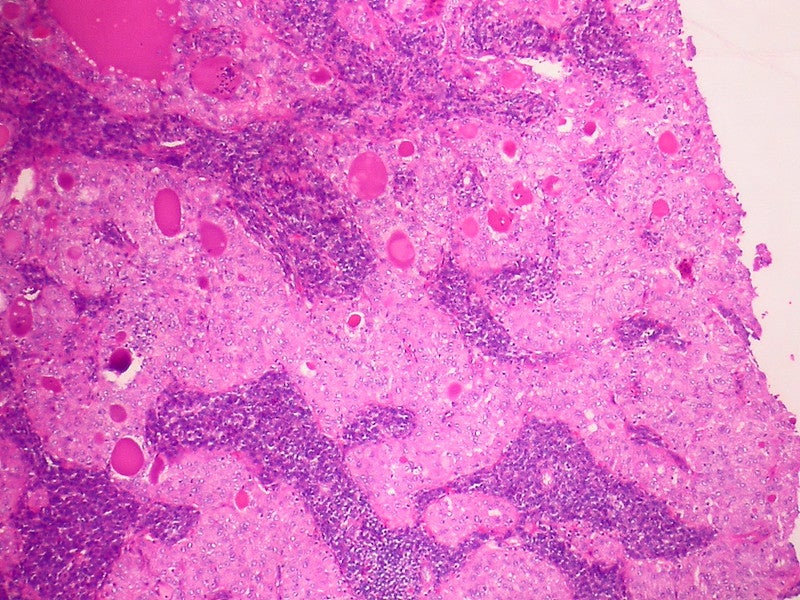
Immuno-oncology company Aulos Bioscience has dosed the first US participant in its Phase I/II clinical trial of AU-007 to treat solid tumours.
The first-in-human, open label trial has been designed to assess the immunogenicity, safety, clinical activity, and tolerability of AU-007 in unresectable, locally advanced or metastatic cancer patients.

Discover B2B Marketing That Performs
Combine business intelligence and editorial excellence to reach engaged professionals across 36 leading media platforms.
It is now enrolling participants at one site in Huntersville, North Carolina, and four sites in Australia.
Phase I includes three dose escalation arms, where AU-007 will be given either as a monotherapy, or along with a single loading recombinant human IL-2 (aldesleukin) dose, or with both AU-007 and aldesleukin given every two weeks.
In the trial, aldesleukin will be given subcutaneously, at much lower doses and much less frequently compared to the approved intravenously given aldesleukin regimen.
The company stated that the trial’s Phase II portion will assess a dosing regimen which is selected from dose escalation to expand in specified tumour types for further defining AU-007’s initial efficacy and safety.

US Tariffs are shifting - will you react or anticipate?
Don’t let policy changes catch you off guard. Stay proactive with real-time data and expert analysis.
By GlobalDataAulos Bioscience chief medical officer Jim Vasselli said: “In low doses, IL-2 is an immune suppressant and at high levels, it is toxic. With AU-007, we are seeking to overcome these challenges through precision routing of IL-2 while producing an anti-cancer effect.
“The unique profile we’ve seen so far with AU-007 gives it an advantage over all other IL-2 therapies currently in development.
“Through artificial intelligence, AU-007 has been designed to redirect IL-2 away from immunosuppressive Tregs and the vasculature and toward T effector and NK cells.”
AU-007 has demonstrated promising preclinical and initial clinical evidence that it can break the negative feedback loop to Tregs by attaching to IL-2 instead of the IL-2 receptor.





